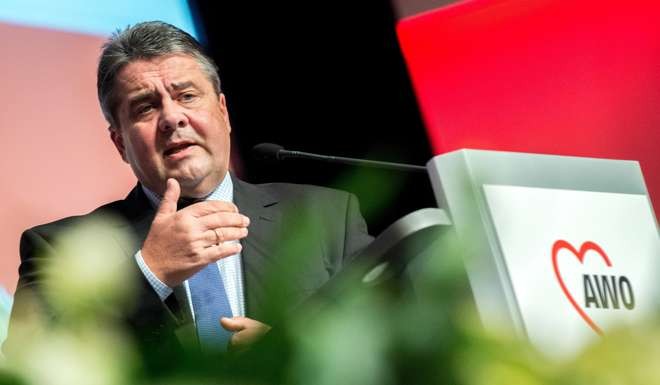
Beijing warns mainland investors, M&A is not an excuse for capital flight
Chinese policies now making it increasingly difficult to get large amounts out the country
The biggest regulatory challenge facing Chinese companies wanting to snap up European assets isn’t political opposition from other governments, it’s getting the money out of the country in the first place, analysts say.
Domestic Chinese policies are now making it increasingly difficult to actually get large amounts of funds out the country, according to Richard Butterwick, a London-based partner with US-headquartered law firm Latham & Watkins which has more than 200 M&A lawyers based in Europe.
His comments were made during a visit to Hong Kong, before sources told the Post of a central government policy shift designed to curb mainland China’s outbound investment, which means all overseas payments larger than US$5 million may need to be cleared before going ahead.
“It’s not about restrictions in Europe – it’s about the ability of Chinese companies to put themselves in a position domestically to get cleared to do a transaction and to have the clearance for their money to be used offshore. That is the real hurdle,” said Butterwick.
“That process has been streamlined in recent years, and it’s no coincidence that has coincided with an increase in outbound M&A.”
Capital Link Investment Holdings chairman and chief executive Brett McGonegal says Beijing is sending a signal to mainland investors, namely “M&A is not an excuse for capital flight”.
“It’s putting everyone on notice, M&A is not the way that all money gets a free pass to go offshore.”
Instead, M&A deals will have to be strategic, well thought-out and pass a vetting process, he said.
“My gut is they don’t want to stop M&A, because if they wanted to stop M&A they could just say ‘we’re stopping it’,” he told the Post on Tuesday.
“Clearly, if there’s going to be a lot more scrutiny and a much more onerous process of approval, then immediately the impact will be that it [M&A] will slow down.”
He expects a “short term pause” as everyone waits to see how the process will work.
“I don’t think this is a ‘kill M&A idea’ – I think it’s that there’s a responsible way to go about doing it.”
McGonegal says the biggest risk to outbound Chinese investment is “clearly” the domestic rules - but he sees possible tightening of regulations in the European Union as another possible risk.

But UBS Asset Management managing director Hayden Briscoe says the biggest risk is protectionism – and does not see Beijing’s new rules as having a significant impact.
“All of these [Chinese] restrictions are very short term, but longer to medium term they always get unwound,” he told the Post on Tuesday. “I don’t think the M&A activity is going to slow down longer term at all.”
“China is trying to secure food and energy security which is very important to the country ... you’re seeing the M&A activity is very targeted to specific industries.”
As deals get larger, he expects more to be funded with bond loans in the currency of the country where the acquired company is based.
“The key risk is around protectionism,” he said, referring to Europe and the United States. “It’s someone doing something to them.”
Next year, economists are expecting a backlash from European elections, Donald Trump coming to power in the US, and Brexit being triggered.
Around 45 per cent of Chinese outbound M&A activity, or US$94,839 million, has headed for Europe this year to date, more than any other region, according to Dealogic figures.
In recent months there has been a series of instances of governments blocking Chinese investment in Europe, especially in Germany, where economy minister Sigmar Gabriel in October reopened a review of the Chinese takeover of the semiconductor company Aixtron after a growing backlash to Chinese investment. It follows calls by Gabriel for European Union measures to give national governments more powers to block or impose conditions on shareholdings of non-EU companies.

